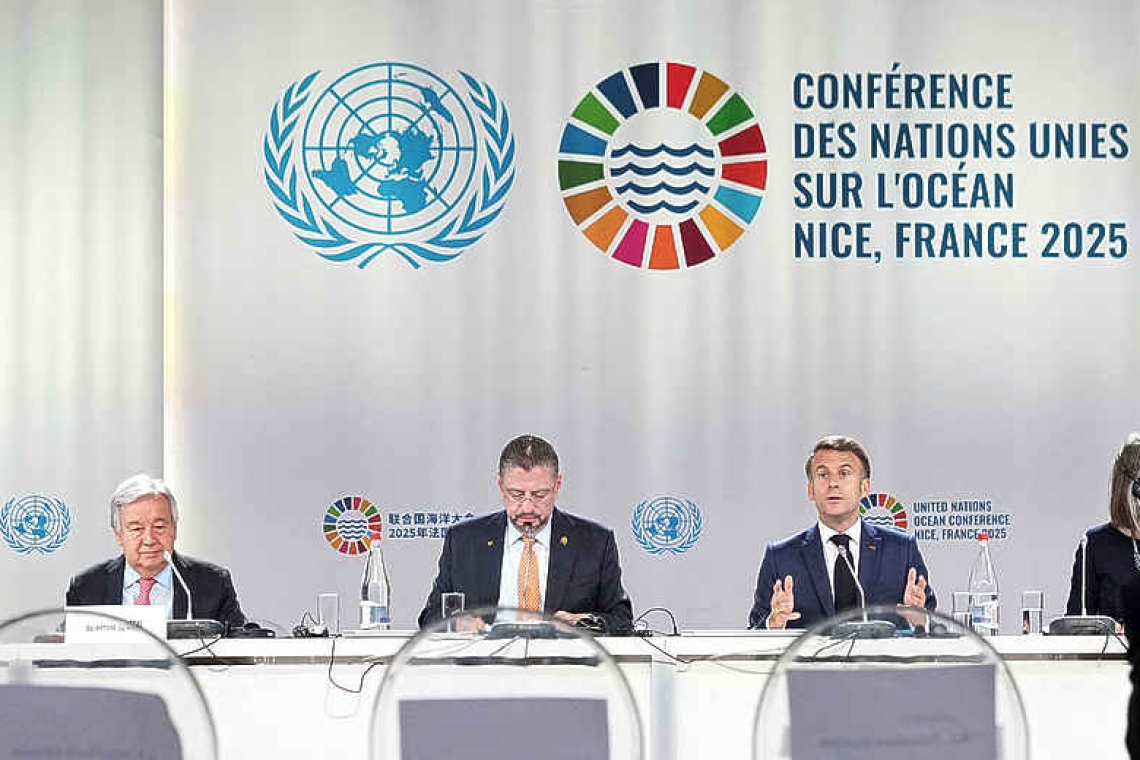NICE, France--The international treaty on the high seas, which focuses on conservation and sustainable use of maritime areas beyond national jurisdictions, has received sufficient support to take effect early in 2026, French President Emmanuel Macron said on Monday.
Speaking at the third United Nations Ocean Conference in Nice, Macron said 55 countries' ratifications of the treaty have been completed, around 15 are in progress with a definite date, and another 15 will be completed by the end of the year, meaning that the required 60 ratifications will be achieved.
"This means that this treaty will be able to enter into force on January 1 of next year, which means we would finally have an international framework to regulate and administer the high seas,” Macron said at close of day one of the conference, which is being held for the first time in Nice.
The High Seas Treaty, adopted in 2023, would permit countries to establish marine parks in international waters, which cover nearly two-thirds of the ocean and are largely unregulated. Hitherto, only an estimated 1% of international waters, known as the "high seas", have been protected.The treaty comes into force once 60 countries ratify it.
Once the 60th ratification deposited, the treaty will enter into force after 120 days, setting the stage for the first-ever legally binding global framework to protect marine biodiversity in areas beyond national jurisdiction, according to the highseasalliance.org, which tracks the number of signatures.
At the end of May, after the European Union and six EU member states deposited their ratification at the UN, the number stood at 28.At the opening of UNOC3 in Nice on Monday, U.N. Secretary-General Antonio Guterres urged world leaders to ratify the treaty.
Guterres cautioned that illegal fishing, plastic pollution and rising sea temperatures threatened delicate ecosystems and the people who depend on them."The ocean is the ultimate shared resource. But we are failing it," Guterres said, citing collapsing fish stocks, rising sea levels and ocean acidification.
Oceans also provide a vital buffer against climate change, by absorbing around 30% of planet-heating CO2 emissions. But as the oceans heat up, hotter waters are destroying marine ecosystems and threatening the oceans' ability to absorb CO2.
The drive for nations to turn years of promises into meaningful protection for the oceans comes as President Donald Trump pulls the United States out of climate projects and as some European governments weaken green commitments as they seek to support anaemic economies and fend off nationalists.The United States has not yet ratified the treaty and will not do so during the conference, Rebecca Hubbard, director of The High Seas Alliance, said.
"If they don't ratify, they are not bound by it," she said. "The implementation will take years but it is critical we start now and we won’t let the U.S. absence stop that from happening."







